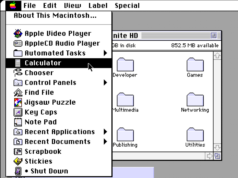
After 2023’s emotional rollercoaster of student loan news, 2024 is shaping up to be another important year for federal student loan borrowers. Some of these student loan forgiveness initiatives are approaching key deadlines or cutoff dates, while other programs are just getting started. Student loans have a chokehold over millions of Americans, but you have a few months to put yourself in the best position to tackle yours.
New employer retirement benefits
When: Jan. 2024
Thanks to SECURE 2.0, you don’t have to choose between saving for retirement or paying down student loan debt. Starting this year, employers can contribute to their employees’ retirement accounts with the express purpose of helping pay down student debt. Employers can contribute up to $5,250 per year on a tax-free basis to qualified retirement plans to help reduce student loan balances. Reach out to your employer to make sure you’re able to take advantage of this dual retirement/student debt benefit.
Expanded SAVE repayment benefits
When: July 2024
The Biden administration’s Saving on a Valuable Education (SAVE) Plan allows many borrowers to lower their monthly payments—some all the way to $0. This program replaces the income-driven repayment plan known as Revised Pay as You Earn (REPAYE), coming with reduced monthly payments and greater protection for income required to meet basic needs.
If you’d like to take advantage of these benefits ASAP, you should sign up for SAVE before July.
End of the student loan payment on-ramp
When: Sept. 30 2024
Currently, the Education Department is not reporting missed or late payments, nor is it placing loans into default or delinquency status. But for anyone benefiting from this on-ramp period after the pause on their payments since March 2020, your loan interest will resume accruing on Sept. 30, with payments due in October.
Make sure you are prepared for payments to start again by contacting your servicer and updating your auto-debit enrollment if needed. It’s your existing loan provider, not the government, that will inform you about any outstanding balance and revised monthly payment amounts.
Once you know how much you’ll have to start repaying monthly, begin budgeting for it ASAP. Take advantage of the prep time you have and ease yourself into the full monthly payment amount. This taper could look like saving 25% of your loan payment the first month, then 50% the next, and so on. Whatever amount you set aside, consider putting it into a specific high-yield savings account, so it’s earning a little interest until it has to be used. The taper strategy allows you to pull funds from these few months of savings, rather than abruptly from your income once repayments resume with full consequences intact.
Potentially: Biden’s new student loan forgiveness program
When: Possibly Nov. 2024
After the Supreme Court ruled against President Joe Biden’s student loan forgiveness plan, the administration is expected to announce a new, tailored-down version of the plan sometime in 2024. And like the original sweeping plan, this trimmer version is expected to face legal challenges. All you can do now is stay tuned for more information and be ready to act quickly if a forgiveness application is required.
What this means for you
Mark your calendars for these key dates in 2024. Stay up-to-date on developments so you can maximize benefits and preparedness. The best course of action is, unfortunately, preparing for the worst: if, for instance, that student loan forgiveness doesn’t come to fruition, it’s important to start taking steps now to get your repayment plan in order. Whatever the outcome of Biden’s forgiveness plan, you never know what else you may be eligible for. FSA has a guide here for you to check your eligibility for other government loan forgiveness programs. Check to see if you qualify for one of these student loan grants, and reach out for help if you need guidance navigating student loan repayment or forgiveness programs. And if you’re (understandably!) tempted to just say “fuck it,” here’s what happens if you don’t pay back your student loans at all.








